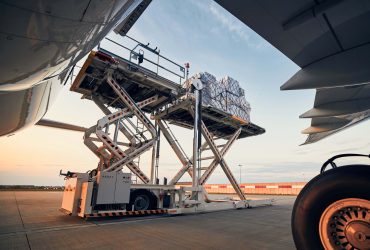Global Devastation As Cyclone Ripples Through India And Pakistan
Flooding, wildfires, extreme heat, and sub-minus temperatures – global weather is becoming increasingly unpredictable as a result of climate change and this is causing extreme damage all over the world. What’s more, many businesses are unaware just how much their supply chain could be affected by these changing environments and don’t factor it into their strategy.
Here, we delve deep into just how fragile the global supply chain can be as well as what you can do if you need to ship goods all over the world.
Cyclone Biparjoy hits the Arabian Sea
Over the past week, North-West India and Southern Pakistan has been hit with a powerful cyclone causing more than 170,000 people to be evacuated as well as several deaths. Referred to as Cyclone Biparjoy, it’s believed to be one of the worst of its kind in 25 years.
Officials have warned that wind speeds could reach up to 78 mph and storm surges along the coast could be as high at 13ft. As well as high winds and heavy rain, meteorologists have said that high tides could cause irreparable damage to low-lying coastal areas.
Unfortunately, stories like this are becoming all too common in our everyday news. Only last year, Pakistan was hit with extreme floods and Australia has also faced a series of unprecedented flooding and wildfires.
A global impact
It’s no secret that environmental events can cause complete devastation. The last cyclone in the North Indian Sea took place in 2021 and killed 174 people. The worst cyclone to hit this area, which took place 25 years ago, is said to have killed more than 4,000 people.
What’s more, experts have highlighted that rising surface temperatures across the Arabian Sea because of climate change means that such storms are more likely to occur.
The damage has a knock-on effect too. For example, officials in India and Pakistan have warned that the current storm could cause irreparable damage to homes and crops. Several transport services have been suspended including at the ports of Kandla and Mudra – two of India’s largest ports. Fishing has also been halted and fishermen in Pakistan and Indian coastal regions have been told to stay ashore. Indeed, global trade will be affected and in turn businesses could see a spiralling effect on their own supply chains.
So, what’s the answer?
Climate change is directly linked to extreme weather which is having a significant impact on trade all over the world. Put simply, temperatures are rising, the sea level is increasing, and weather patterns are becoming more unpredictable – which makes transport, supply, and distribution more vulnerable. That’s before we mention the likes of port, road, and rail closures because of the weather. All of this presents a stark reality regarding the fragility of supply chains, which many businesses don’t factor in.
There is a solution though and that’s where Far comes in. For more than 20 years, we’ve been helping our clients all over the world to operate their supply chains in an efficient way. We stay up to date with industry news and trends, so you don’t have to, and advise on a personalised supply chain strategy that meets your needs and budgets and combats any associated challenges.
Not just that but we use the latest technology to give our clients a complete overview of their supply chain so you can effectively manage your operations. We also continuously develop and maintain collaborative relationships with the main aim of ensuring your deliveries can take place quickly and efficiently.
With one finger always on the pulse, our team is also able to offer advice and suggest alternative solutions if your strategy must change. Navigating the global trade and logistics landscape isn’t always easy but with Far by your side you can rest assured that we’re going above and beyond to ensure that you meet all requirements.
If you have any questions about the information above or want to discuss how Far Logistics could help you, don’t hesitate to get in touch.


